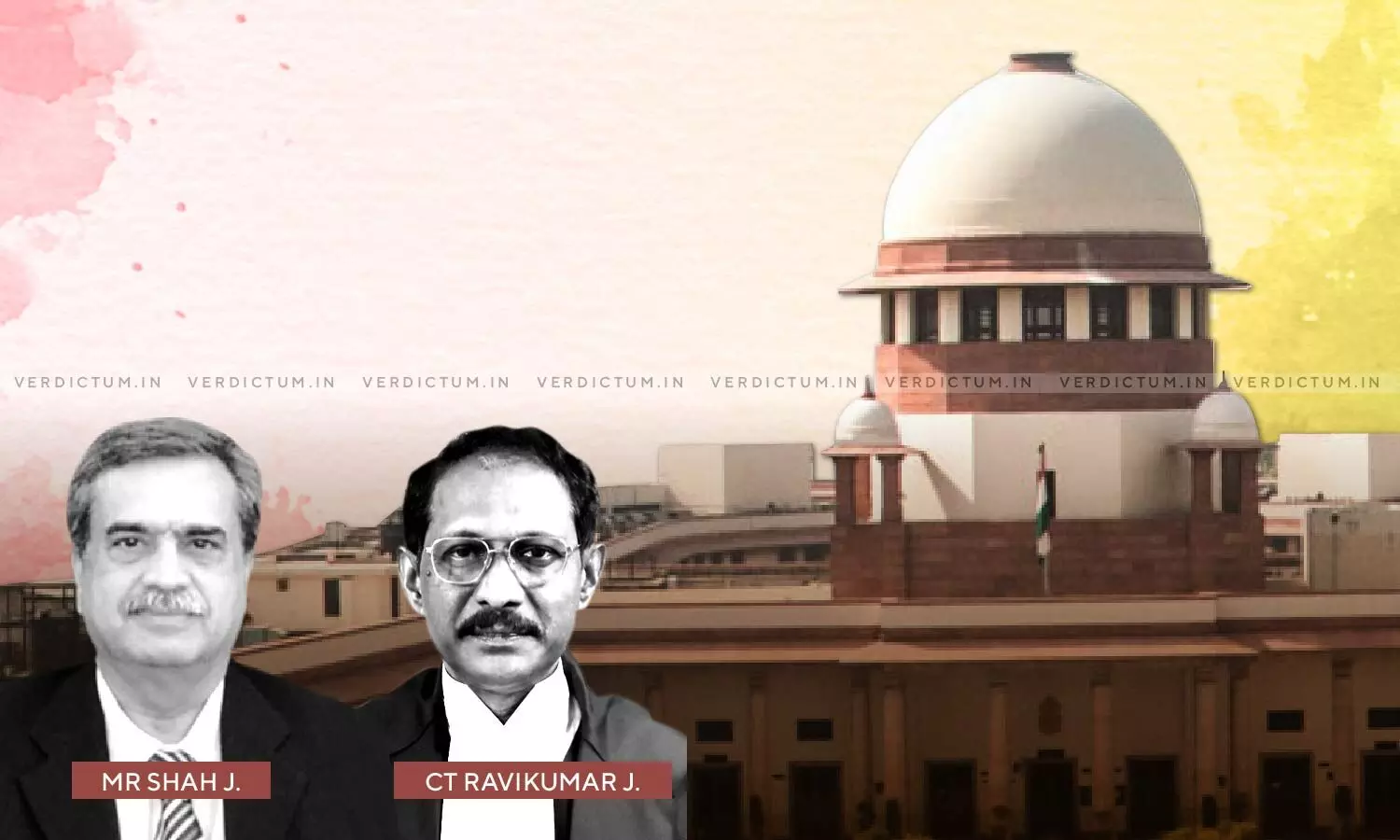
ESI Act Applicable To Establishments Irrespective Of Number Of Employees- Supreme Court
 |
|The Supreme Court held that as per Section 1(6) of the Employees’ State Insurance Act, 1948 (ESI Act) an establishment would be governed by the Act even if the number of employees fell below the specified limit at any time. And the provision would be applicable to establishments established prior to the provision coming into existence.
The Bench of Justice M.R. Shah and Justice C.T. Ravikumar observed that “Sub-section (6) of Section 1 therefore, shall be applicable even with respect to those establishments, established prior to 31.03.1989/20.10.1989 and the ESI Act shall be applicable irrespective of the number of persons employed or notwithstanding that the number of persons employed at any time falls below the limit specified by or under the ESI Act.”
In this case, the respondent- Radhika Theatre paid ESI contributions up to September 1989. Since the number of employees went below the prescribed number i.e., 20, it stopped making contributions. Demand notices were issued by the ESI Corporation. The demand notices were challenged before the EI Court, which was dismissed.
An appeal was moved before the Telangana High Court wherein it was contended by the respondent that the amended section 1(6) of the ESI Act would not apply retrospectively and therefore, they were not liable to make contributions as the number of employees were less than 20. The High Court accepted the argument of the respondent and allowed the appeal.
The High Court held that the amendment by which sub section (6) was inserted to section 1 of the ESI Act would not be applicable retrospectively and the same would not be made applicable to an establishment, established prior to October 20, 1989 /March 31, 1989.
Aggrieved by the said decision, the appellants approached the Apex Court.
Amended Section 1(6) of the ESI Act came into effect on October 20, 1989 which contemplated that all establishments would be governed by the ESA Act, notwithstanding the fact that number of persons engaged therein was less than the prescribed number.
Advocate Mahesh Srivastava appeared for the appellant.
The Apex Court considered the object, purpose and preamble of the ESI Act and said that the Preamble provided for benefits to employees in case of sickness, maternity and employment injury and to make provisions for certain other matters in relation thereto.
“Thus, the ESI Act being a social welfare legislation, any interpretation which would lean in favour of the beneficiary should be given.” observed the Court
Therefore, the Court observed that the High Court had erred in quashing the demand notice even for the period subsequent to October 20, 1989 and held that as per the amended section 1(6) of the ESI Act an establishment would be governed by the Act even if the number of employees fell below the specified limit at any time.
Accordingly, the appeal was allowed and the order passed by the High Court was set aside and demand notice for the period post October 20, 1989 were restored.
Cause Title- The ESI Corporation v. M/s. Radhika Theatre
Click here to read/download the Judgment